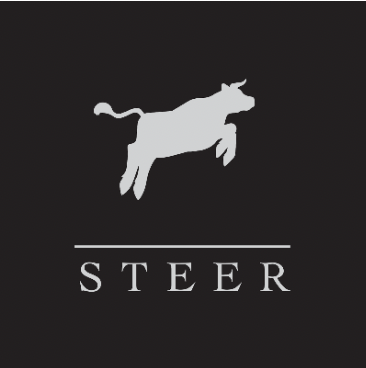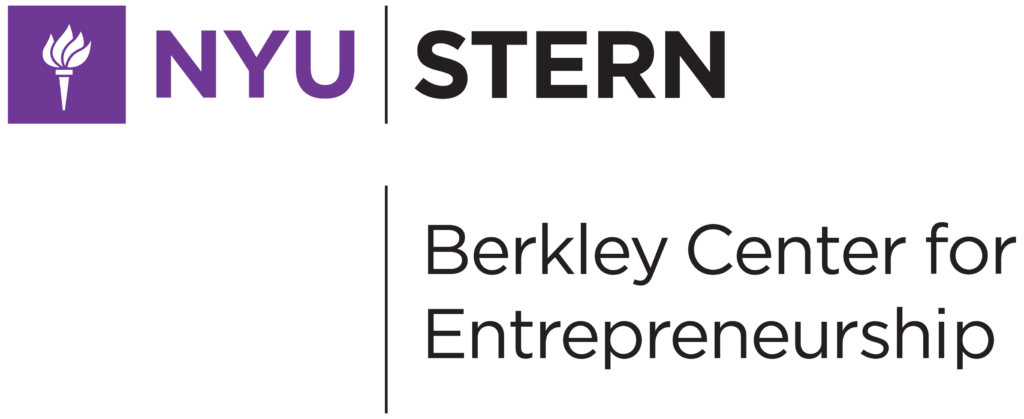
Kicking Off SVF: Steer
By:Cortlandt Meyerson (BS ’24) and Jackson Baris (BS ’24)
There’s something wrong with the meat industry. It’s not the cows, it’s not the consumption of meat, but it’s how we’re producing it. The U.S. agro-industrial complex is optimized for output, which increases profitability even at the expense of everything else. For cows, this means being fed corn and other grains that have been genetically modified to be pesticide resistant so that they can be doused in chemicals that kill every other living organism. It means farming and grazing land that has been tilled and pumped full of fertilizer so that when it rains, the topsoil erodes and the phosphates and nitrates run into the rivers. It means stressed cattle living in inhumane conditions, injected with growth hormones, and in need of antibiotics due to overcrowded feedlots that promote the spread of disease. For us, it means poor-quality beef from improper diet and exercise.
Luckily, there are solutions to these environmentally destructive, inhumane, and unhealthy practices. One solution solves all three—regenerative farming.
Regenerative cattle farming is the practice of rotating high-density cattle herds between fields with low-to-no synthetic inputs in the soil and no tilling. The cattle graze until the grass is cut low, producing manure and trampling it into the soil in the process, and then are herded to the next pasture while the previous is given time to regrow. The result is the sequestration of carbon in the soil through the manure and the grass root systems as they photosynthesize to regrow. As this process mimics natural grazing patterns, it also rebuilds topsoil, increases biodiversity, and makes the grasslands more disease and drought-resistant. Plus, the cattle are able to roam and forage, giving them a healthier lifestyle with a nutrient-rich diet. The net carbon emissions of the farm are greatly reduced, the cattle receive humane treatment, and the beef they produce is leaner and significantly healthier with higher concentrations of vitamins and essential fatty acids. And finally, small farmers using these regenerative practices are more profitable as their expenses on fertilizer and heavy machinery are reduced while their beef sells at a premium.
This is where we come in.
In high school, Jackson Baris was eating beef jerky, and a lot of it. But every time he ate it, it sat heavily in his stomach and left him feeling sick. Determined to curb his jerky cravings in a more satisfactory way, Jackson began making beef jerky at home, iterating over and over on the recipe. Before long, his friends began asking for more, and in order to afford to produce it, he began selling bags. In the process, he learned about the horrors of the meat industry and was determined not to be a participant. He began a relationship with Thousand Hill Lifetime Grazed farms, which is now one of the regenerative farm networks.
This past spring, Jackson began working with me, Cortlandt Meyerson (another NYU student), to start scaling. Currently, we are producing and scaling the beef jerky business to get into retail. We’re making artisanal, sweet & spicy jerky with all organic ingredients and shipping it out. However, we’re building not just a company for beef jerky but a brand for regenerative farming. We believe there needs to be a shift in how we’re producing our food, and sustainability is no longer enough. We need to be regenerative.
Over the past few months, we participated in NYU’s Startup Bootcamp and Sprint, and are now participating in the Stern Venture Fellows (SVF) accelerator program. We’re incredibly grateful for the support we’re receiving from fellow participants, mentors, and MBA students. The depth and breadth of knowledge have allowed us to move forward with a clearer plan for growth, and the non-dilutive funding has given us the boost we need to pursue it. We couldn’t be happier with the coaching we’re receiving. It’s helping us grow as entrepreneurs and build a strong foundation of skill sets. We’re looking forward to meeting with other teams and learning from each other’s roadblocks; to coaching sessions that make sure our efforts are propelling us towards our goals, and to the successes and challenges we will face as we begin expanding our customer base!

